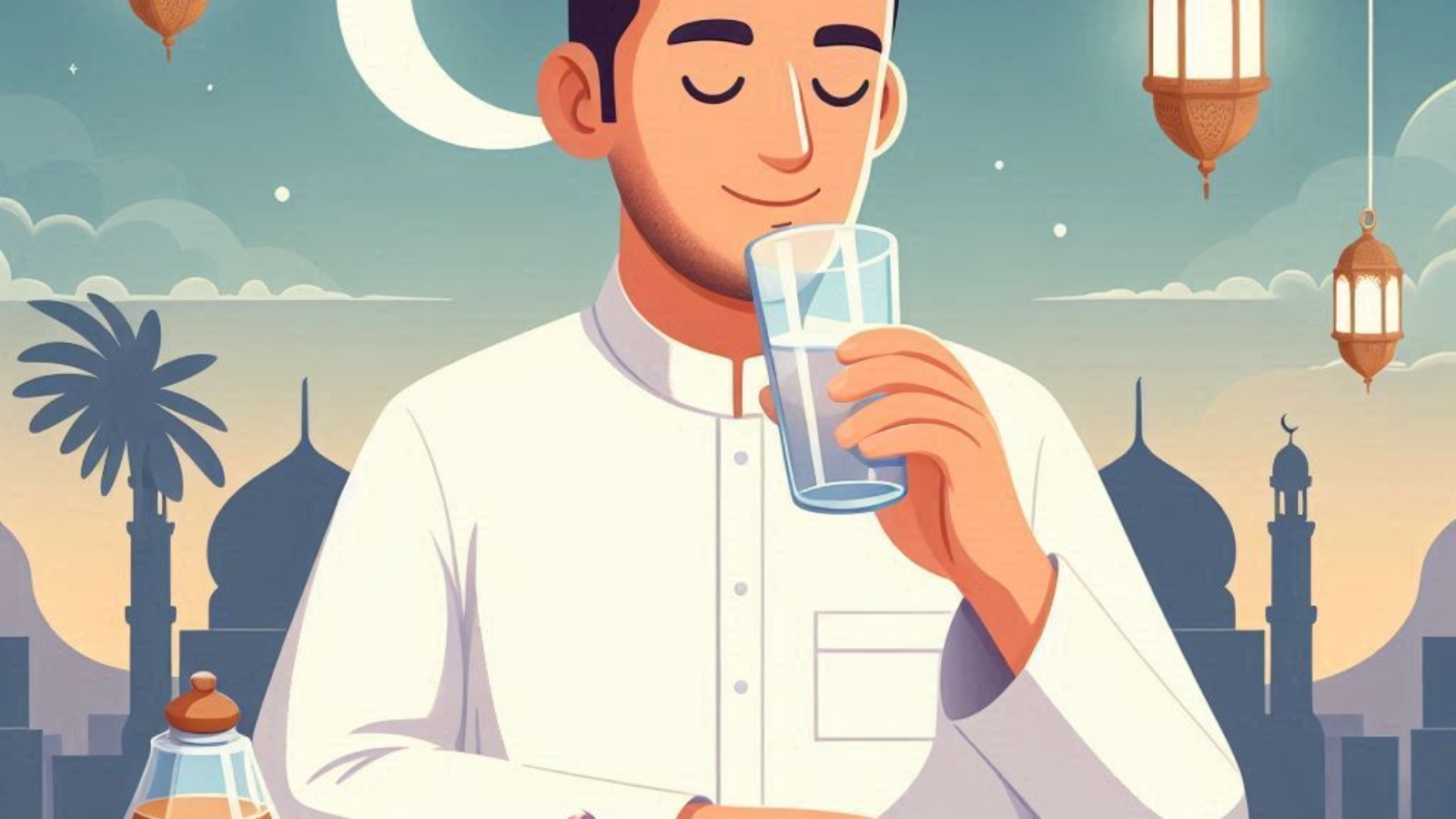Ramadan is a month of fasting, reflection, and devotion. However, staying hydrated can be a challenge, especially during long fasting hours. Dehydration can lead to fatigue, headaches, and low energy levels, making it essential to drink enough water and eat the right foods during non-fasting hours. Here are some simple and effective tips to stay hydrated during Ramadan.
1. Drink Plenty of Water
Water is the best way to keep your body hydrated. Aim to drink at least 8-10 glasses of water between Iftar and Suhoor. To make it easier:
- Drink 1-2 glasses at Suhoor
- Have 2-3 glasses during Iftar
- Sip on water throughout the night
- Carry a bottle with you to remind yourself to drink
2. How to Drink Water Properly for Better Absorption
Sometimes, we drink a lot of water quickly, and it leads to frequent urination, meaning our body does not absorb it well. To ensure proper hydration:
- Sip water slowly instead of drinking large amounts at once.
- Spread your water intake evenly throughout the night.
- Add a pinch of salt or lemon to help retain fluids.
- Drink water at room temperature rather than very cold water, which can pass through the body quickly.
- Include foods with electrolytes to help your body absorb water better.
3. Eat Hydrating Foods
Fruits and vegetables with high water content help maintain hydration. Some good choices include:
- Watermelon
- Cucumber
- Oranges
- Strawberries
- Tomatoes
- Spinach
Including these in your Suhoor and Iftar meals can make a big difference in how hydrated you feel.
4. Avoid Dehydrating Drinks
Certain drinks can cause dehydration and should be limited, such as:
- Coffee
- Tea
- Soft drinks
- Energy drinks
These beverages contain caffeine, which increases urination and can lead to dehydration. Instead, opt for herbal teas or fresh juices.
5. Limit Salty and Sugary Foods
Salty foods, such as chips and processed snacks, can make you feel thirsty. Similarly, sugary foods can cause a spike in blood sugar, leading to increased thirst. Try to eat balanced meals with moderate amounts of salt and sugar.
6. Break Your Fast Wisely
Start your Iftar with a glass of water and a few dates. This helps replenish lost fluids and provides quick energy. Avoid overeating fried or heavy foods, as they can make you feel sluggish and thirsty.
7. Pace Yourself
Instead of drinking large amounts of water at once, drink in small sips throughout the night. This helps your body absorb the water better and prevents bloating.
8. Use Coconut Water or Electrolytes
Coconut water is a natural source of electrolytes and can help replenish lost minerals. You can also add electrolyte-rich drinks to your diet to maintain hydration.
Conclusion
Staying hydrated during Ramadan is essential for your health and energy levels. By drinking enough water, eating hydrating foods, and avoiding dehydrating beverages, you can ensure a more comfortable and refreshing fasting experience. Take care of your body, and enjoy the blessings of this holy month!

 Cart is empty
Cart is empty 
Good https://is.gd/tpjNyL